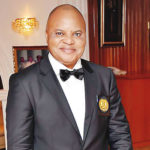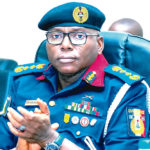The National President of the Nigeria Association of Women Journalists (NAWOJ), Comrade Ladi Bala has highlighted the critical role of the media in the electoral processes ahead of the 2023 general elections in Nigeria.
Comrade Bala gave the highlights in Port Harcourt, the Rivers State capital, during a two-day capacity building/mentoring workshop for female journalists organized by the International Press Center (IPC), Lagos, in collaboration with NAWOJ National Secretariat, with support from the European Union (EU).
She noted that the media plays an important role in strengthening democracy and good governance in the country.
The NAWOJ President urged participants at the workshop to take advantage of the training to enhance their skills and build their capacities to be able to effectively cover the 2023 general elections.
Bala, however, urged female journalists in Nigeria to stand out, shun financial inducements and support the drive for accurate and inclusive reportage, with a view to combating fake news before, during and after the 2023 general elections.
In his speech, the executive director International Press Center (IPC), Lagos, Nigeria, Mr. Lanre Arogundade, said the overall objective of the 2-day workshop was “to strengthen the media for fair, accurate, ethical and inclusive reporting of the electoral processes and elections and, in particular, to position female journalists to be in the frontline professional, inclusive, conflict sensitive, fact-checked and data driven coverage and reportage.”
Arogundade said the workshop is part of the activities under Component 4 (Support to media) of the European Union Support to Democratic Governance (EUSDGN II) project, of which IPC is the lead partner.
He commended the national leadership of NAWOJ for sharing the vision of the IPC and the EU on capacity building for female journalists.
The IPC executive director said female journalists were change agents who are committed and passionate about development Journalism and are ready to be equipped with skills and tools to report the electoral processes in a way that would change perspectives and the narratives in the 2023 general elections and beyond.
On day one of the workshop, The workshop, which attracted female journalists from the broadcast, print and online media of states in the South South, South East and South West states of the country, a resource person and deputy editor of Africa Check, Motunrayo Joel, while speaking on “Factual Accuracy and Combating fake news: the place of fact checking and data use in reporting of 2023 elections,” charged journalists to use current and accurate data in their reports as well as do a fact check on information and figures at their disposal to be sure their reportage is accurate and factual.
Taking participants on “Electoral Processes and 2023 Elections: According Priority to Issues of Women and other Underrepresented,” Dr Titi Osuagwu of the University of Port Harcourt, urged female Journalists to intensify and amplify the coverage of women and other underrepresented groups such as people living with disabilities, youths, widows, etc in the civic arena, as well as provide women more opportunities to set the agenda in the political processes
.
On “Impactful Reporting of Electoral Processes and 2023 Elections: Focusing on Issues and Telling Stories that Matter,” another resource person, Mr Taiwo Obe, the founder of Journalism Clinic, noted that the soul of Journalism is story telling, adding that Journalism is about reporting in the public interest by giving people the information they need to make better decisions.
Obe also reasoned that “Journalism is also about the issues, your locality, the agenda, fact checking, inclusiveness, and about Reporting Until Something Happens (RUSH).”
Other topics treated during the workshop were: “Conflict Sensitivity and Safety in Election Reporting,” by the executive director of the International Press Center (IPC), Lagos, Mr Lanre Arogundade, as well as practical sessions on skills and tools to search for the real origin of photographs on road and other projects shared on social media using Google Search, Bing, Yandex and InVid Verification Plugin as well as using Carbon Dating The Web on the Google app, which helps to know exactly when and where a web page or links on social media were created, using Weigh Back Machine to know when your web document was altered for use by other people, as handled by Motunrayo Joel.
Other tools were Labmol.org to use Google reverse image to know where an image actually originated from, as well as the use of Canva.com to produce documents such as birthday cards, flyers, invitation cards, among other tools by Mr Taiwo Obe.
ALSO READ FROM NIGERIAN TRIBUNE






